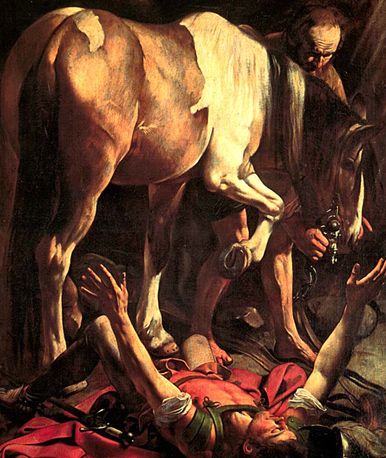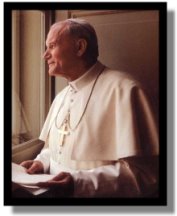Alfred started life behind: orphaned by age 12 and having to work hard for his food and lodging on his uncle's farm.
He went on to spend time in jobs as a shoemaker, a baker, a blacksmith, a factory worker, and even a simple manual laborer - all before he was 25.
He then applied to join a religious community and was turned down.
Eventually, however, the community was talked into accepting him.
Alfred was given the job of watching the door (in addition to janitor, sacristan, laundry, messenger, and other duties as assigned). He stayed in that job for 40 years.
People found Alfred a wonderful man to talk to, and most especially, to pray with.
In fact, sick people who came to Alfred would many times be cured. Word spread and eventually many, many people would want to receive healing from God at the prayer of Alfred (some years, he would receive 80,000 letters).
Alfred had a devotion to St. Joseph and wanted to build a chapel on the hill behind the place where he lived and worked. It was a very large hill, dominating the city, and land for a chapel could not be obtained.
Alfred walked up the steep hill with his confreres, leaving mementoes of St. Joseph.
Very quickly thereafter the landowners relented and sold the land to Alfred’s congregation. Alfred got to build his chapel, but it quickly became too small for the crowds that flocked to pray with him. It was expanded and then replaced with a space for a thousand people, but that also proved too small. They then began to build a larger space: a veritable basilica.
Alfred, once turned down by the Holy Cross order for poor health, died at the age of 92 seventy-two years ago
today. More than a million people came to pay their respects for the holy man they knew by his religious name,
Brother André.

The Oratory of Saint Joseph on Mount Royal in Montreal today rises 97 meters from the ground to the tip of the cross atop its great dome and seats 2,200 in the upper basilica section.
Brother André Bessette was beatified by the great Pope John Paul II on May 23, 1982.
(from an earlier post)
 A Penitent Blogger
A Penitent Blogger















